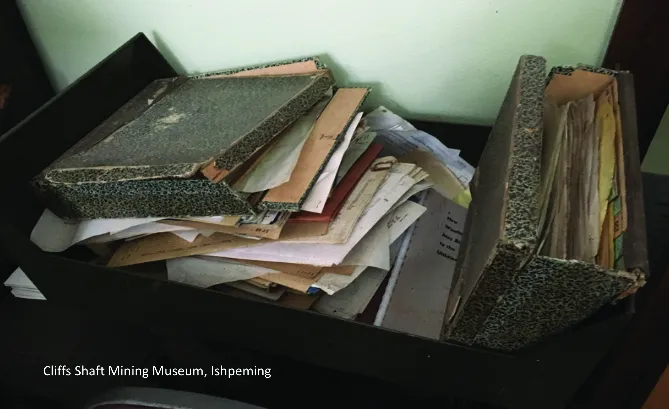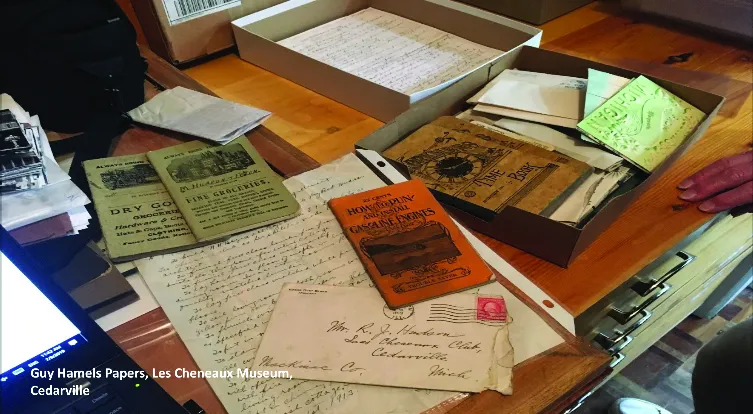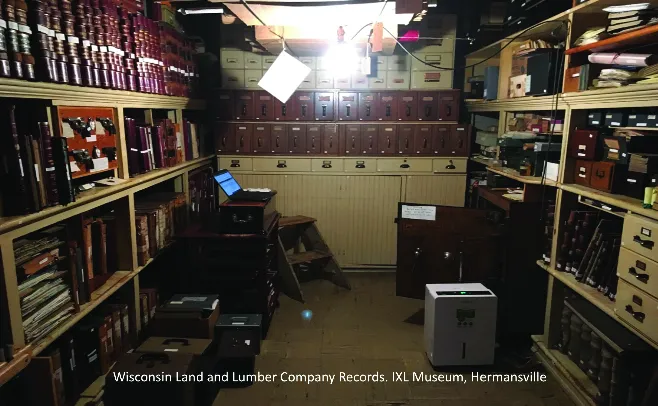
The Upper Peninsula is filled with rich and exciting history. But many U.P. historical organizations don’t have the time, ability or funding to make their collections more widely accessible and get them online. Some are stored in less-than-ideal conditions, putting their preservation and existence in peril.
Thanks to a $100,000 grant from the National Archives’ National Historical Publications and Records Commission (NHPRC), the world will soon have online public access to important U.P. records, photos and history via the Upper Peninsula Digital Network—UPLINK.
By visiting 17 U.P. heritage organizations and sending out informational surveys, Marcus Robyns, university archivist and director of the Central Upper Peninsula and NMU Archives, was able to study about 80 percent of the heritage organizations within the Upper Peninsula. Robyns found that only one organization—the Delta County Historical Society in Escanaba—has digital materials for online public access. UPLINK will allow for primary source material from participating U.P. organizations to be easily accessible.
The process of making these materials digital is much more complex than most people think. Robyns stated that “it’s a very unique project; there are only a few like it in the country that have attempted to do something like this.” This grant will allow the NMU Archives to hire professional digital archivists, collect digitization equipment, provide technical services and train organizations to maintain a digital archive. “This is a collaborative project; these organizations will help offset the cost of the digitization process by doing a lot of the work themselves, so we have to train them to do that; this is part of the vision,” he said.
“The U.P. has struggled to identify, collect and preserve its documentary heritage. Most museums, archives and libraries are not well funded and short-staffed, primarily with volunteers. This has resulted in considerable challenges for preservation and access to important historical records, making digitization projects nearly impossible. The real goal of this project is to try to provide assistance to these groups to reveal valuable historical records and to make them accessible to students, the public and researchers.”
NMU Archivist Marcus Robyns
“The majority of U.P. heritage institutions do not actively collect or manage digital records. Those that do digitization work overwhelming only digitize photographic material from their collections in-house, mainly at a volunteer’s home using personal equipment. The majority of backup procedures are rudimentary, with digital content maintained on hard drives, flash drives, CDRs or DVDs. No organization has digitized a complete manuscript collection comprised of different analog formats.”
UPLINK and NMU have the ability to change this with access to collection management software, online metadata work and newer technology to help preserve the U.P.’s history in a number of different formats, including photographs, text and analog audio-visual media. All of these forms of media will be converted to online digital content.
A great example of the type of organizational records that UPLINK is working to preserve is the IXL Historical Museum in Hermansville, Michigan. This small town is about 17 miles west of Escanaba. The museum holds the records of the Wisconsin Land and Lumber Company, which later became the IXL Company. They document the logging and lumbering industry of the U.P. from the late 19th century to the early 20th century. “It is an unbelievable collection, but nobody knows that it’s there,” Robyns said.
That is just one of dozens of U.P. historical collections calling out to be preserved, discovered, studied and marveled at.
There are a number of ways alumni can help with the project. They can volunteer with their local historical society to identify and prepare materials for digitization or can return to campus for training and assist NMU Archives staff.
Coming full circle, students will also be helping with this project. Several will be hired by the NMU Archives in the fall and work with Annika Peterson ’17 BA, former Archives student assistant, and now digital project manager.
Representatives from NMU, Michigan Tech, Lake Superior State, Peter White Library, Marquette Regional History Center and other heritage organizations collaborated on the grant and developed the administrative structure, policies and procedures for the network. NMU will serve as the central service hub and will host and manage the UPLINK website. The site will also act as a portal to national resources including ArchivesSpace collection finding aids, Preservica’s Universal Access page and the Digital Public Library of America.
To get involved or learn more, visit nmu.edu/archives/uplink or contact Marcus Robyns at mrobyns@nmu.edu or 906-227-1046.
Photos courtesy of the Central Upper Peninsula and NMU Archives


